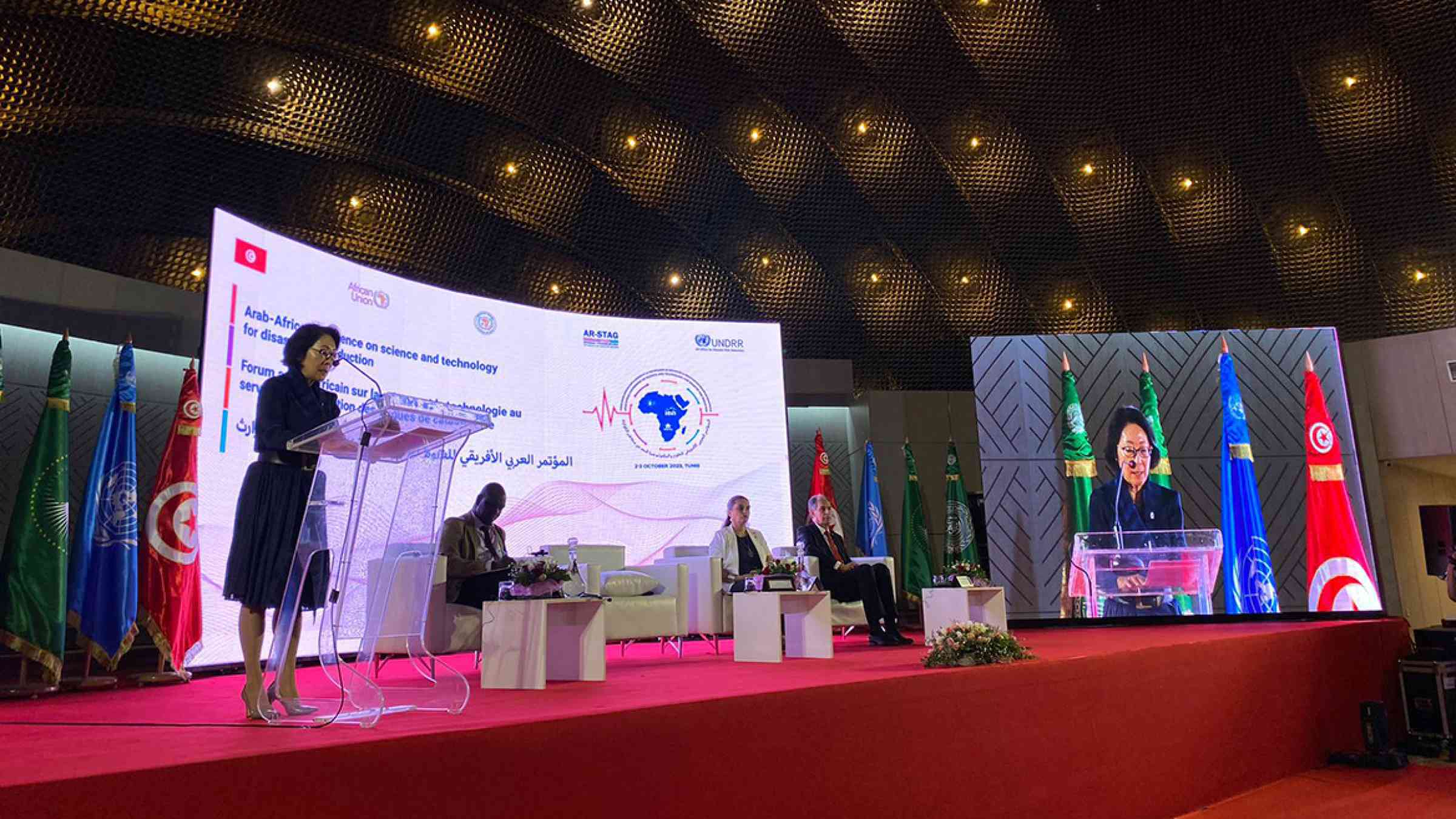Arab-Africa Conference for Disaster Risk Reduction sets the stage for ‘Arab-Africa Call of Tunis’

Tunisia, 3 October 2023 – The Arab-Africa Conference on Science and Technology for Disaster Risk Reduction recently concluded, leaving behind a trail of insights, commitments, and renewed stamina in the realm of disaster risk reduction. Over 400 international experts, policymakers, academics, and business leaders convened for this two-day event, held under the theme "Towards a Resilient Future: Science, Technology, Policy, and Private Sector Nexus for Disaster Risk Reduction,” and organized by the UNDRR Regional Office for Arab States and hosted by the Government of Tunisia.
Partnerships, science, and technology at the forefront
One of the conference's standout achievements was the promotion of cross-sector collaboration. The event emphasized the crucial role of partnerships and cooperation among governments, the private sector, academia, and civil society in executing disaster risk reduction initiatives. It served as a resounding reminder that disaster risk reduction is a collective responsibility that necessitates comprehensive and coordinated efforts.
Throughout the conference, science and technology took center stage. Participants emphasized the significance of scientific research in comprehending disaster risk factors, developing evidence-based strategies, and facilitating decision-making and policy formulation. The sessions showcased how innovative technologies can drive progress in disaster risk reduction.
Shared responsibility for resilience
Mami Mizutori, Special Representative of the Secretary-General for Disaster Risk Reduction, highlighted the importance of collective action in her remarks. She stressed the need for stronger connections between decision-makers, the scientific community, and the private sector, emphasizing that disaster risk reduction is a shared responsibility.
The conference encouraged governments to play a pivotal role in shaping policies and regulations that support disaster risk reduction initiatives. Simultaneously, it recognized the private sector's critical role in investing in disaster risk reduction projects to safeguard employees, customers, and assets. The private sector's commitment to innovation and research in disaster risk management was a prominent highlight.
Challenges, opportunities, and commitment to action
The conference addressed existing challenges, including insufficient collaboration and coordination across sectors. It shed light on the gap between science, policy, and the private sector, highlighting the need for a more harmonious approach. However, it also explored opportunities for collaboration, with an emphasis on public-private partnerships and the role of universities and research institutions in bridging gaps.
As a culmination of the event, participants made substantial commitments to applying science and technology in disaster risk reduction, aligning with the Sendai Framework for Disaster Risk Reduction's goals and targets. The "Arab-Africa Call of Tunis on Science and Technology for Disaster Risk Reduction" was announced, demonstrating the commitment of both the Arab and African regions to cooperate on the critical issue of disaster risk reduction and to harness science and technology in this field.
To translate the commitments made in the "Arab-Africa Call of Tunis" into tangible change, Mizutori has invited the Government of Tunisia to consider forming a task team in collaboration with relevant organizations. This team would develop an action plan with clear timeframes and a cost plan to mobilize necessary resources, engaging all relevant stakeholders in the implementation process.
Impact on international agendas
The outcomes of this conference are expected to inform international agendas, including the upcoming 28th session of the Conference of Parties for Climate Change (COP28) in Dubai, UAE, and the Arab and African Regional Platforms for Disaster Risk Reduction in 2024.
The Arab-Africa Science and Technology Conference for Disaster Risk Reduction showcased global commitment to building resilient communities and promoting sustainable development. It emphasized that disaster risk reduction is not just a goal but a shared effort involving all sectors of society.